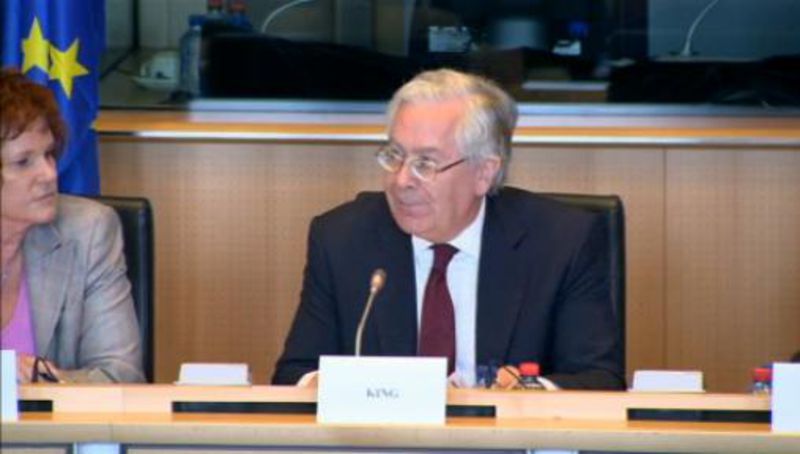ECOFIN will ask for a timetable from Greece
euinside, February 15, 2010
 The situation in Greece, the eurozone and the EU in general will be discussed today and tomorrow by the ministers of finance of the Union (ECOFIN) in Brussels. It is expected Greece to be given a specific timetable to correct its budgetary deficit. The government in Athens itself committed to reduce the deficit which is exceeding 12% of GDP by at least 4% in 2010. Separately ECOFIN will make recommendations to Greece how to return into the financial framework of the Union. This is what EU leaders were supposed to do at their informal summit last week in Brussels but then they decided to leave the issue to their ministers.
The situation in Greece, the eurozone and the EU in general will be discussed today and tomorrow by the ministers of finance of the Union (ECOFIN) in Brussels. It is expected Greece to be given a specific timetable to correct its budgetary deficit. The government in Athens itself committed to reduce the deficit which is exceeding 12% of GDP by at least 4% in 2010. Separately ECOFIN will make recommendations to Greece how to return into the financial framework of the Union. This is what EU leaders were supposed to do at their informal summit last week in Brussels but then they decided to leave the issue to their ministers.
Greece is an an excess deficit procedure since April 2009. Beside from the budgetary deficit of 12.75% of GDP, the country had a large debt of 113% of GDP by the end of 2009. These data seriously harmed the confidence in eurozone's capabilities to deal with such a problem without having a political union.
So far the European Commission has recommended ECOFIN to require from Greece to apply specific measures for budgetary consolidation. Part of these measures are urgent and should be applied by May 15th 2010. Besides, Athens must present on March 16th a report with concrete timetable for implementation of all these measures, if they are recommended by the ministers of finance.
ECOFIN will also discuss the excessive deficit procedures against Lithuania, Malta and Romania. A review of the measures, applied by Latvia, Hungary and Poland will also be made. According to the Stability and Growth Pact, which will also be reviewed, the budgetary deficit should not exceed 3% of GDP. Many of the eurozone's member states like France and Germany have violated the terms in the Pact many times but were never fined.
A serious problem with the Pact, with which not only euro area member states comply but all EU member states, is that the measures it can apply against undisciplined countries are firstly never implemented and, secondly, are often under the form of financial sanctions. If a country is fined in a situation even not so bad as with Greece, this might additionally deteriorate its public finances. This is why many commentators note more and more often that the confidence in the euro area is fading significantly because of its incapability to push for tight financial discipline. And this is impossible because of the lack of political, aside from the monetary union.
 | © European Union
| © European Union | © European Union
| © European Union | © European Union
| © European Union